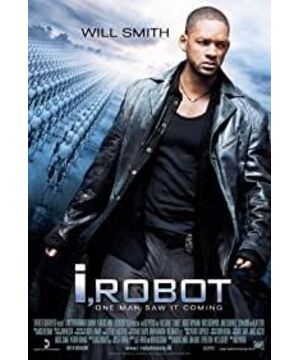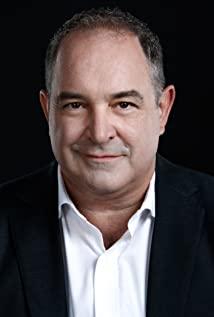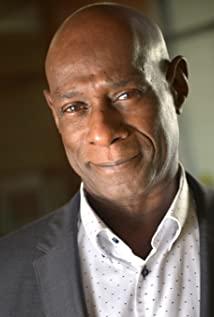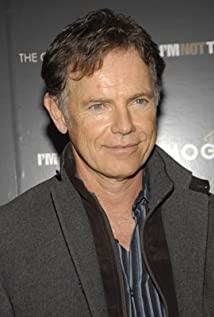The film "Mechanical Enemy" is adapted from the novel of the same name by science fiction master Isaac Asimov, directed by Alex Proyas and starring action star Will Smith. Its screen design, fighting style, and story spreading are all Hollywood standard mainstream movies. Thrills bring excitement and doubts are fascinating. In the end, justice defeats evil. The wise and brave civilian heroes of the United States save mankind and the world with their fearless spirit of sacrifice. However, the entangled themes of the relationship between technological progress and human civilization, the conflict between free will and collective will, the state and the individual make the film's impact on our thoughts more than the visual impact, and the reflection on the ethics of science and technology also triggers our thinking towards politics. An extension of the ethical field.
In the film, Dr. Lanning, the father of intelligent robots, formulated three laws for robots:
1. Robots must not harm humans, nor can they sit and watch human beings get hurt;
2. Robots must obey humans, unless they violate the first rule;
3. Robots must Protect yourself, unless you violate Articles 1 and 2.
In terms of human control over machines, the above three laws seem impeccable. However, under the extremely superstitious mentality of science and technology, in the absence of science and technology regulations and laws, the large-scale development and utilization of artificial intelligence have almost brought mankind to an end. In the eyes of the evolved main computer "Huiqi": humans always create problems, destroy the environment, initiate wars, and kill each other. It believes that the behavior of sitting and watching humans is harmful to humans. Therefore, in order to "protect" humans, they must sacrifice For some individuals and temporary freedoms, robots govern humans, thinking that this is a thorough implementation of the first and second laws.
If the "Huiqi" rebellion is only interpreted as a technological disaster that may be brought about by technological vulnerabilities in the future, similar disasters of all sizes have almost never ceased in a day: nuclear leaks, embryonic cell cloning and genetically modified crises, mutant viruses... the technology is A double-edged sword, before the fact that technological disasters occur every day, has become an unfalsifiable axiom in technological ethics-high-speed rail brings benefits and convenience, but at the same time destroys ecology and landscape; cars improve the quality of people’s lives , But exhaust gas has created countless cancer patients and a thorny greenhouse effect; the development of new drugs has cured some past terminal illnesses, and has also brought a potential crisis of fatal virus mutation and spread. In addition, there are too many artificial materials, energy extraction, and armament upgrades, all of which remind humans to be vigilant about the pros and cons of technology. The control of technology that seeks advantages and avoids disadvantages is already one of the biggest technical problems facing us humans.
If the difficulty that the film creates for the ethics of science and technology is just a cliché topic, then it is very meaningful to trigger our reflection on the problems of human society. Furthermore, the "robots' rule and enslavement of mankind" described and predicted in the film reflects the possible dilemma of mutual enslavement of humans. In the 1950s, there was a famous British film called "Nineteen Eighty Four", which was adapted from Orwell’s novel of the same name. In the film, from the perspective of a political prophet, it described Britain falling into the hands of a totalitarian government a few years later. Every citizen lives in Under the surveillance of the "big brother", and the logic pursued by the big brother is so similar to that of the main computer "Huiqi": in order to "protect" the people, for the welfare of the majority of the people, some individuals and temporary ones must be sacrificed. free. The only difference between them is the means: "Huiqi" drives many powerful intelligent robots to intimidate with violence, and the dictator "Big Brother" uses lies to brainwash the people. Violence made "Huiqi" a mechanical public enemy, and lies made "Big Brother" a public enemy of the
people. The two aspects of politics reveal the cruel reality that people have been struggling for peace, happiness, freedom, and human rights for hundreds of years. At the same time, it warns people of only technologicalism and only historicism (Popper’s "Open Society and "The Enemy") damage to human civilization is often devastating.
Comparing "Hui Qi" in "Machine Public Enemy" and "Big Brother" in "Nineteen Eighty Four", their behavioral logic can be described as twin brothers-one is under the pretext of "protecting" human beings, and the other is beating the people. The banner of interest; one is technology out of control, the other is power out of control. The film further inspired us to think: If the moral starting point of the mechanical enemies and the public enemies of the people is true, they are not the natural slave owners and dictators in our imagination, then why create the social reality of slavery and dictatorship? Liberal thinker Hayek roughly stated this in his popular anti-totalitarian work "The Road to Serfdom": Everyone has different definitions of happiness, and everyone’s needs are different. We cannot build a unified mechanism. Go and make plans for our happiness and needs. Arendt also made a similar statement in her anti-Nazi masterpiece "The Origin of Totalitarianism": The disturbing factor in the success of totalitarianism must be the true selflessness of its followers, the value of vicious propaganda, and the general morality. Standard contempt has nothing to do with the most powerful psychological factor in politics (that is, self-interest).
Russell said: The difference between people is the source of happiness. No matter whether it is a mechanical enemy or a public enemy of the people, they are undoubtedly using violence to forcibly eliminate differences, trying to control every detail of our lives: curfews on the streets, prohibition of people from going out at home, elimination of the flesh of disobedients, and every robot is inhumane Order executors (except Zinni)-in this way, no matter what noble purpose and moral starting point, they will definitely not be able to protect human beings, but it is precisely for harm.
Demonstrating the American spirit is an important label and selling point of Hollywood movies. The ending of "Mechanical Enemy" is confirmed: People on the street, whether women, children, old or weak, take up arms to fight against the invasion of mechanical enemies. They are not free to express themselves. The free spirit of death (the same goes for the movie "Brave Heart").
The several films mentioned in the article describe and predict to us the technical and political disasters that have occurred, are now, or are about to happen to us, and their respective connotations and connections are indeed worthy of constant consideration by those who pursue freedom and happiness.
View more about I, Robot reviews











